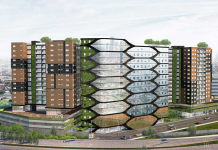
Philippine real estate activities will be allowed to resume in areas under general community quarantine (GCQ). The Department of Trade and Industry (DTI) proposal was confirmed and adopted by President Rodrigo Duterte as the country looks to reopen the economy.
Key areas, including the National Capital Region (NCR), Cebu and Davao, remain under enhanced community quarantine (ECQ) which does not permit real estate business to be conducted.
Interior Secretary Eduardo Año told local media that some cities in Metro Manila could shift to GCQ as soon as May 15 when the current ECQ order ends. However, certain cities in the NCR deemed high-risk areas are likely to remain in ECQ beyond then.
DTI guidelines allow for real estate activities to resume in any area under GCQ. Approved operations include property leasing, buying, selling, subdividing and appraising. This is welcome news for both real estate agents and developers who have been left in a state of uncertainty since ECQ went into effect.
Short term real estate demand is expected to dip, but some activity, especially on the secondary property market, is likely. Lobien Realty Group believes motivated sellers wanting liquidity could create a buyer’s market in certain areas.
Reopening the Philippine economy
Some regions in the Philippines, such as Bohol, moved to GCQ on May 1. All businesses in these areas must strictly observe social distancing, reduction of personnel and comply with the Department of Health guidelines regarding COVID-19. They must also comply with curfews and other measures put in place by the local government.
According to DTI estimates, nearly half of the economy in the Philippines is now operational. But the country cannot fully return to normal until hubs like Metro Manila move into GCQ.
“The GCQ areas are already a big help in the reopening of the country’s economy, but Metro Manila still accounts for the bulk of operations,” DTI Secretary Ramon M. Lopez explained to the Manila Bulletin.




















